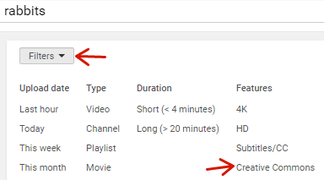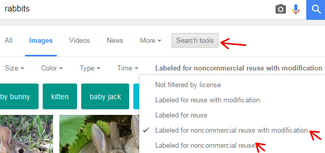COPYRIGHT, FAIR USE, & the CREATIVE COMMONS
What is copyright? According to Merriam-Webster.com, copyright is "the exclusive legal right to reproduce, publish, sell, or distribute the matter and form of something (as a literary, musical, or artistic work)." That's why I had to ask for permission for every logo I used on this website.
If you create an original work (poem, story, song, etc.) YOU are the copyright holder! That means, just like you can't take the works of others without permission, other people cannot take yours. Pretty cool, huh?
What is not copyrighted? Not everything can have ownership. For example, ideas, names, titles, works by the US government, and works that are commonly available (like measurements, basic calendars, etc.) are not copyrightable. That's why movies (and books, songs, etc.) can have the same titles as long as the content is different.
What is Public Domain? This refers to works that were never or are not now copyrighted. There are several ways an item can fall into the public domain (works by the US government, for instance). A copyright owner still holds the original rights to his/her work up to 70 years after his/her death! After that, the work can possibly move into the public domain (if the copyright is not renewed by someone). Books, stories, and movies before 1923 are all in the public domain, which is one reason websites like Project Gutenberg can exist where you can download tons of free eBooks!
What is copyright infringement? Copyright infringement is anytime someone uses someone else's protected work without permission.
What is Fair Use? Fair use allows people to use certain amounts of copyrighted material without permission if it will be used for educational or research purposes. That is why your teachers can photo copy certain items and distribute them or why news sites can report on a movie or play without permission from the copyright holder. There are many rules to follow regarding Fair Use. For instance, you may use in a presentation for school a copyrighted song, but you can only legally use up to 30 seconds of the song (yes, even if you bought the song from iTunes!).
What is Creative Commons? Your new best friend, that's what! Creative Commons is an organization that, in simple terms, allows for sharing of original work (videos, music, etc.) without worrying about copyright laws. That is why when you are searching for images to use for projects, you should always change your usage rights in your search engine's advanced search feature to filter by license.
Still confused? No worries - this is complicated stuff that even adults still debate (for some interesting reading, read HERE about the current argument - and lawsuit! - about whether or not the song "Happy Birthday to You" is in the public domain).
For more information, visit Copyright.gov, The Fair Use Evaluator, or A Guide to Copyrights, Trademarks and Patents
If you create an original work (poem, story, song, etc.) YOU are the copyright holder! That means, just like you can't take the works of others without permission, other people cannot take yours. Pretty cool, huh?
What is not copyrighted? Not everything can have ownership. For example, ideas, names, titles, works by the US government, and works that are commonly available (like measurements, basic calendars, etc.) are not copyrightable. That's why movies (and books, songs, etc.) can have the same titles as long as the content is different.
What is Public Domain? This refers to works that were never or are not now copyrighted. There are several ways an item can fall into the public domain (works by the US government, for instance). A copyright owner still holds the original rights to his/her work up to 70 years after his/her death! After that, the work can possibly move into the public domain (if the copyright is not renewed by someone). Books, stories, and movies before 1923 are all in the public domain, which is one reason websites like Project Gutenberg can exist where you can download tons of free eBooks!
What is copyright infringement? Copyright infringement is anytime someone uses someone else's protected work without permission.
What is Fair Use? Fair use allows people to use certain amounts of copyrighted material without permission if it will be used for educational or research purposes. That is why your teachers can photo copy certain items and distribute them or why news sites can report on a movie or play without permission from the copyright holder. There are many rules to follow regarding Fair Use. For instance, you may use in a presentation for school a copyrighted song, but you can only legally use up to 30 seconds of the song (yes, even if you bought the song from iTunes!).
What is Creative Commons? Your new best friend, that's what! Creative Commons is an organization that, in simple terms, allows for sharing of original work (videos, music, etc.) without worrying about copyright laws. That is why when you are searching for images to use for projects, you should always change your usage rights in your search engine's advanced search feature to filter by license.
Still confused? No worries - this is complicated stuff that even adults still debate (for some interesting reading, read HERE about the current argument - and lawsuit! - about whether or not the song "Happy Birthday to You" is in the public domain).
For more information, visit Copyright.gov, The Fair Use Evaluator, or A Guide to Copyrights, Trademarks and Patents
|
Finding Copyright-Friendly Images and Videos
(Even though these sources are fine to use, you must cite them too!)
|

